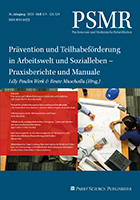The damaging effects of too much alcohol on the brain are widely known, but often neglected, and poorly understood. New data provided by the working group "Molecular Psychopharmacology at the Institute of Psychopharmacology at the Central Institute of Mental Health (ZI) offers a fundamentally new insight into the molecular basis by which repeated alcohol intoxication causes a substantial and long-lasting reorganization of the medial prefrontal cortex, a structure that participates in higher order brain functions, commonly referred to as executive functions.
The working group "Molecular Psychopharmacology, led by Wolfgang H. Sommer, investigates genetic, neurobiological and behavioral factors contributing to addictive behaviors. In this context the group focuses on long-term consequences of alcohol in the brain, in particular how these affect the prefrontal cortex (PFC). A new paper, published in February by the Journal of Neuroscience, shows that alcohol damages a small sub-region of the PFC called the infralimbic area, but that rats can regain control over pathological alcohol seeking behavior after repairing this functional deficit.
Specifically, the researchers show that a subgroup of PFC neurons is particularly sensitive to the long-term consequences of repeated alcohol intoxications (blood alcohol concentrations > 2.5 g/l, a level that is typically observed in alcoholic patients). These neurons become unable to adequately control the release of their signaling substance glutamate due to a lack of autoreceptor function normally provided by glutamate receptors of the mGluR2 type. Sommers team can directly link this loss of function to escalated alcohol seeking because restoring mGluR2 levels in infralimbic projection neurons by focal virus-mediated gene transfer was sufficient to abolish the excessive seeking response completely. The translational value of the findings from experimental animals is supported by data from human postmortem brains showing a reduction in mGluR2 expression in a corresponding PFC region of alcoholics.
These results suggest that mGluR2 loss in rodent and human neural circuits, which provide cortical control over deeper brain structures involved in motivational and emotional regulation, may be a major consequence of alcohol dependence and a key pathophysiological mechanism for the increased propensity to relapse. Given that it seems possible to restore PFC control over drug seeking behavior by repairing mGluR2 autoreceptor function, it now becomes important to understand the molecular mechanism leading to the blockade of receptor expression. Assuming that epigenetic silencing plays role in this process, the working group "Molecular Psychopharmacology is now aiming to design interventions for removing such epigenetic marks.






















